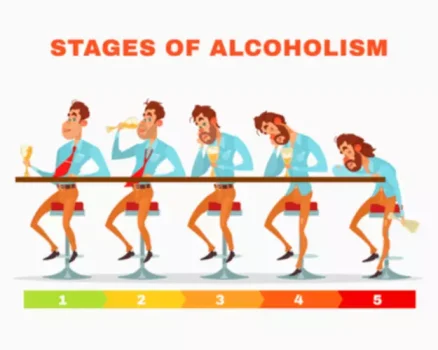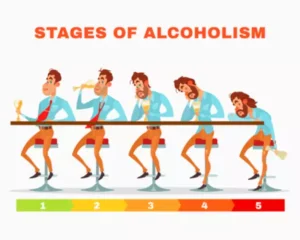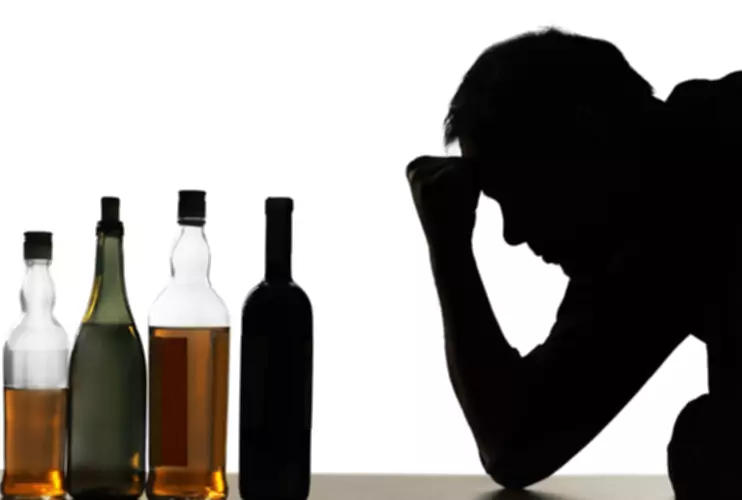
It does pose numerous negative health effects, including lower life expectancy. If you have a loved one who can’t drinking and life expectancy stop drinking, get that person the help he/she needs today. Contact the nearest alcohol treatment centers and ask about their rehab programs. If you’re in the Iowa area, you may want to check out the best rehab centers in Iowa.
4. Study Protocol
An average of two drinks per week can reduce our lifespan by three to six days. Moderate drinking, which is one to two drinks per day, can take off two and a half months of our life. Last but not least, heavy drinking which is about 35 drinks per week can cut our life expectancy by about two years. In addition, people who abuse or are dependent on alcohol are much more likely to experience a mental health disorder, such as depression.
- “The most important thing is that people are informed about the nature and scale of alcohol’s risks so they can make their own choices,” Stockwell says.
- To avoid the mixing effect of smoking and drinking, the subgroup analysis was conducted to make the results closer to real world because of the high co-use rate, 72.2% of males in our study.
- Because of the nutrients and antioxidants found in coffee, previous research reports that the drink may help decrease a person’s risk for diseases like type 2 diabetes, metabolic syndrome, liver disease, and obesity.
- Just by typing “alcohol life expectancy study” into Google, we end up with around 11,000,000 results.
What Is the Most Common Cause of Death for Alcoholics?
They found no evidence to support the notion that light consumption of red wine can improve heart health. If you’ve followed health news lately, you may have noticed scientists shifting their stance on alcohol. An analysis by the Centers for Disease Control and Prevention looked at the deaths and potential life years lost due to heavy drinking from 2011 to 2015. During that time, excessive drinking caused an average of 261 deaths per day, and the life expectancy of people who drank excessively was estimated to have been cut short by 29 years on average. In 2020 alcohol rehab alone, about 4 percent of all new cancer cases worldwide were attributable to alcohol consumption, or about 741,000 cases, another study found. A few types of cancer — tumors of the esophagus, liver, and breast — accounted for most alcohol-related cases.
Regular and Heavy Drinking

The habit does not constitute alcoholism, per se, but it can lead to alcohol use disorder if the individual is unable to curtail his/her habit. According to a 2016 Lancet study of 600,000 drinkers, those who consume drinks per week have their lifespans reduced by an average of 1-2 years. The study warns that those who exceed 18 weekly drinks could lose 4-5 years of their lives. 8,274 people died in 2023 from causes that are wholly attributable to alcohol, an increase of 4.6% from 2022 and 42.2% since 2019.

- In addition, the differences in the urine output between alcoholic and non-alcoholic beverages after exercise disappear from 4 h onwards 17,22.
- Columbia epidemiologist Katherine Keyes ’10PH explains the slippery science behind alcohol’s health effects.
- All of these drinking habits can reduce a person’s life expectancy and, in some cases, end life right there.
- However, the inability to continuously track drinking status is indeed one of the main limitations of this study, and we must make improvements in future study design.
But whether it’s through mocktail meetups, outdoor activities, or game nights, there are other ways for people to party, hang out with their friends, and feel in the moment. “Turning the page on alcohol becomes easier when you discover new ways of connecting with people,” she says. The most effective treatment for alcoholism will be whatever works for the person to quit drinking and allow their body to start recovering from the damage caused by repeated heavy drinking. At Resurgence Behavioral Health, we offer a medical detox program that can help people get through alcohol withdrawal safely and make them feel more comfortable as their body rids itself of toxins.
Colorectal Cancer Deaths Increasing Among Millennials and Gen X: Learn the Warning Signs
This could have influenced the rate of gastric emptying and thus the hydration rate during the first 4 h measurements. Eventually, the total amount of fluid would be reflected in the water balance, so we do not expect that this affected the interpretation of the data. In addition, it is important to note that the beverages were not consumed in the fasting state, but together with a meal. We expect that this minimizes the differences in gastric emptying and diuresis compared to the fasting state.
- A few types of cancer — tumors of the esophagus, liver, and breast — accounted for most alcohol-related cases.
- In cases of morbidity, alcohol intake can reduce a person’s life expectancy.
- Some may claim that moderate drinking can actually be beneficial to our health, while most studies suggest that Even one drink a day linked to lower life expectancy.
- On the other hand, less developed regions like Africa and Eastern Mediterranean tend to consume less alcohol due to economic/cultural/religious reasons, and their life expectancy is not affected by the magnitude of drink intake.
- Receive encouragement from people worldwide who know exactly what you’re going through!
- While this is true, researchers at the Canadian Institute for Substance Use Research found that even moderate amounts of alcohol reduce our life expectancy.
Medications and medical support are essential during this brief but important first step toward recovery. After detoxing, most patients will benefit from starting a residential alcohol addiction treatment program that typically lasts for 30 to 90 days. Preliminary research reported at a medical meeting earlier this year also suggests that obesity may increase the risk of developing alcohol-related cancers. Researchers examined data on drinking habits and cancer cases among https://ecosoberhouse.com/ almost 400,000 people in the U.K. Biobank and found that people with the highest BMIs were 53 percent more likely to develop alcohol-related cancer even when they drank in moderation, following dietary guidelines for alcohol consumption.
This study aims to examine the effect on different diseases of modest dirking. Previous studies have strongly indicated that modest drinking was beneficial to CVD13–15,35,36. In contrast, Holmes et al. indicated that there were no protective effects toward CVD in low-moderate alcohol consumption group based on the Mendelian randomization analysis38. Our study also reveals non-significant CVD risk between modest-drinker and non-drinker (Table 2).

Mixing up the Drinks

With growing awareness of alcohol’s health risks, a “sober curious” movement has recently taken off, especially among millennials and young adults. Supporters advocate for a mindful approach to drinking, often encouraging periodic pauses like “Dry January” or “Sober October” and less alcohol consumption overall. “When people cut out alcohol,” she says, “they often sleep better, feel mentally sharper, and have more energy.” She emphasizes that a successful shift toward sobriety often hinges on finding creative new ways to socialize and let loose.
Some people who have a high risk or family history of medical issues linked to drinking like dementia or certain cancers might also wish to abstain or limit alcohol consumption. Table 1 shows the distribution of the demographic characteristics of the MJ Health Screening Center (MJ) cohort by drinking status. There were 339,267 (78.8%) participants without drinking, 60,309 (14.0%) modest drinkers, and 30,440 (7.1%) regular drinkers.
